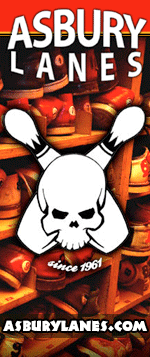Michael J. Fox’s rendition of “Johnny B. Goode” in 1985’s Back to the Future hooked me; at that moment, I learned about the power and fury of seminal rock ‘n roll and I have never fully recovered. Of course, it was a gentrified, Hollywood version of what Chuck Berry continued doing in 1985: still on stage and at the top of his game.
For me, the film might as well have been Alan Freed on a crackly, Bakelite radio in 1955. The soundtrack album to Back to the Future, and Fox’s duck-walking, led me and countless other 1980s adolescents to conduct further research. Who was Chuck Berry? What did the original version of “Earth Angel” sound like? It marked my first hearing of “The Wallflower (Roll With Me Henry)” and “Night Train,” a virtual rock n’ roll 101 for anyone who was paying attention.
It also led to my first brand-new, vinyl album purchase: The Best of the Best of Chuck Berry. Searching with my mom for the “B” section in the Garden State Plaza’s Sam Goody is a vivid memory that I wouldn’t trade for anything and – yes – the beaten-up copy still lives in my collection.
Two years later, it was with much excitement that I dug into the soundtrack to La Bamba. Of course, it featured fabulously modernized takes on Ritchie Valens’ touchstones, but it also introduced Generations X and Y to the music of Jackie Wilson, Eddie Cochran, and Buddy Holly who was portrayed by Marshall Crenshaw. While my nine-year-old self loved the album, there was something special about Crenshaw’s rendition of Holly’s, “Crying, Waiting, Hoping.” To this day, a part of me – in some ways – prefers his version over Buddy’s original. I can’t say the same about Marty McFly’s version of “Johnny B. Goode” as performed by Mark Campbell.
So, I was pretty excited to meet Mr. Crenshaw prior to his solo performance as part of the Society Cafe Concerts in Ridgewood, NJ. As the hall filled up, I was slipped into a large back room which held nothing but Marshall Crenshaw and his Caesar salad.
After congratulating him on his first, eponymous album reaching the 30 year mark this year and asking how he feels about the record today, he confided, “Well, I don’t know. I don’t listen to it. I never listen to my old records. But once in awhile, maybe by accident or on the radio I’ll hear “Someday, Someway” or “Whenever You’re on My Mind.”
“You know, I have mixed feelings: I’m always happy that it seems like the music always feels good and certain things about it, I go, great—I’m so glad I got that right, didn’t mess that up. Other things, you go, oh, well, chalk it up to experience. I mostly like my stuff, you know. I’m glad that people are still interested in the record, that’s for sure.”
Crenshaw also shared his ideas about releasing, on a subscription basis, a vinyl 10-inch, 45 rpm EP every few months rather than working on another large, full-scale album, “I just came up with this idea awhile ago as an alternative to making albums, which I really don’t want to do, but I still love to make records.”
The discs would contain cover songs, reworking of his old pieces and brand new music, “I’ve got the first one ready to go and it comes out sometime in November. The idea is to put out a new EP every four months, roughly. I don’t think we should make it available at all the usual internet spots until after it’s been out on vinyl for a little while. I’m hoping there will be some people that will pick up on the vinyl.”
So, why the vinyl fascination, Mr. Crenshaw? “I think that vinyl sounds the best, it feels the best. When you play a vinyl record, it puts some kind of energy in a room. I’m not complaining about digital, I use it all the time but in a sensual way it’s different, I think, from analog sound. Again, when you play a vinyl record you feel it in a different way and in a better way than you do digital music. I just really believe in it…a lot of people just really believe in it and are into it and I’m one of those people.”
Some of Mr. Crenshaw’s catalog has always been aligned with the well-respected sub-genre of power pop. After asking about how he felt about his placement within that musical world, I received a somewhat unexpected answer.
“I don’t like it. I think it’s like much, much, much too narrow a term for my stuff. The stuff that gets tagged with that label is mostly stuff that I don’t like or listen to.” The man who composed a few of the most powerful pop songs of the last 30 years continued discussing its origin, “I grew up with the 60s stuff…I remember when the term “power pop” was coined. It was in an interview with Pete Townshend…he was talking about “Pictures of Lily” and “Substitute” and all that stuff like that.”
“The idea was, I think, if you listen to those songs, there’s a real sense of vulnerability in the lyrics and melody, but then they put it over in this real kind of explosive manner. So, it is kind of this one trick thing. I love it, I love The Easybeats and the Who and all that kind of stuff from back then, but I’m not super hung up on it. Again, I just think it’s way too narrow a label for my stuff and I hate having my stuff shoved into a sub-category.”
“Anybody that tries to do that I get mad at them cause my stuff is just too good to be put in that little narrow box, I don’t like that.” After a moment of silence, he laughed, “I didn’t mean to give you a lecture!”
So, keep an eye on the Marshall Crenshaw front this November. His vinyl release plan is intriguing and harkens back to a time when music wasn’t available everywhere possible. New music, from an established artist, on an intimate format sounds like a winning game plan, just don’t call it you know what!
Check him out when he comes to your town and don’t forget to tune into Crenshaw’s radio program, The Bottomless Pit, on WFUV, Saturday nights at 10:00pm.
The full audio of my interview with Mr. Crenshaw can be found at www.evantoth.com.












